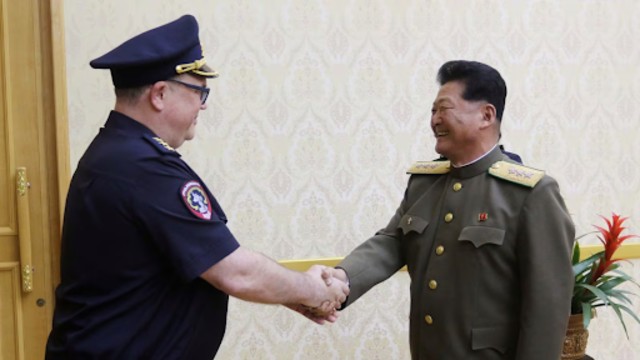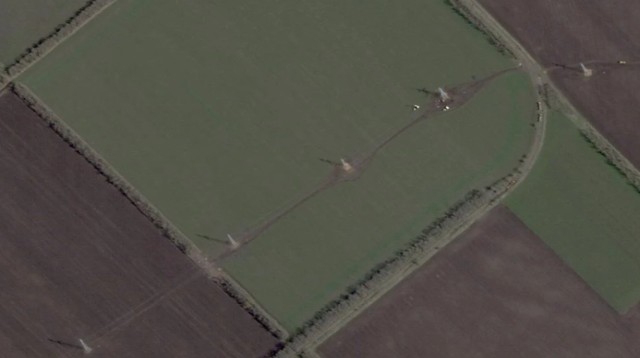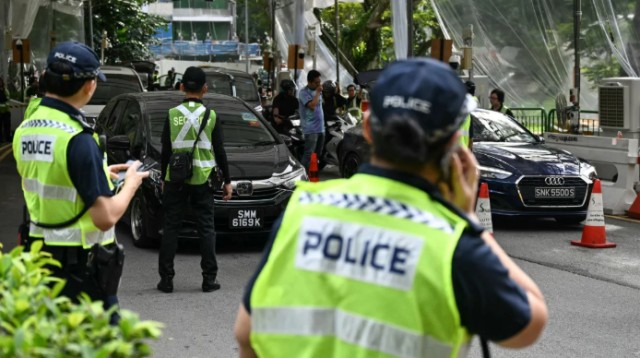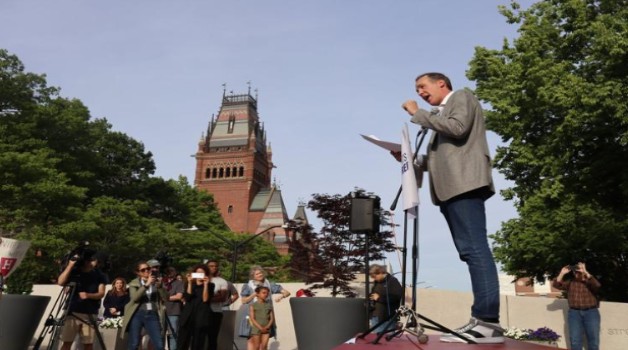
U.S. Secretary of Defense Pete Hegseth speaks in the first plenary session entitled “United States’ New Ambitions for Indo-Pacific Security” during the 22nd IISS Shangri-La Dialogue at the Shangri-La Hotel on May 31, 2025 in Singapore.
In a powerful address at Singapore's Shangri-La Dialogue, US Defense Secretary Pete Hegseth delivered a stark warning to America's Indo-Pacific allies. China’s military ambitions toward Taiwan, he said, pose an imminent threat to global peace and demand urgent collective defense action.
China’s Military Intentions Cannot Be Ignored
Hegseth didn’t mince words. He declared that Beijing is actively preparing for a military takeover of Taiwan. Daily drills by the People’s Liberation Army (PLA) reflect China’s intention to shift the regional balance of power by force.
Chinese President Xi Jinping has reportedly ordered his forces to be ready for an invasion by 2027. Hegseth warned that this timeline may accelerate, stating that the threat could materialize sooner than expected.
Taiwan in the Crosshairs: A Global Concern
Taiwan, a democratic island of 23 million, remains a focal point of tension. Though self-governed, China claims it as part of its territory. The US has consistently supported Taiwan’s sovereignty and security, viewing any aggression from China as a destabilizing act.
Hegseth reaffirmed former President Trump’s stance, saying Taiwan would not fall to China under his watch. He emphasized that defending Taiwan is not just about protecting one island, but about upholding international law and regional stability.
Time for Allies to Step Up
The US defense chief called on regional allies to bolster their military preparedness. He stressed that the US cannot deter China alone and needs “force multipliers” in the region.
Citing NATO’s response to Russian aggression, he urged Asian allies to increase defense spending. “If Europe can commit 5% of GDP to defense, Asia must match that urgency,” Hegseth argued.
He noted that the threats in Asia are not limited to China. North Korea’s growing missile arsenal adds another layer of urgency for regional readiness.
No Desire for Conflict, But No Retreat Either
While insisting that the US does not seek war with China, Hegseth made clear that Washington won’t tolerate aggression. “We won’t be pushed out of this critical region,” he stated. “We will not allow our allies to be bullied.”
His remarks echoed a broader Trump administration tone—tougher and more direct than previous approaches, yet grounded in a consistent Indo-Pacific policy that began under Biden.
China’s Response: Silence and Absence
Beijing, meanwhile, appeared to distance itself from dialogue. For the first time in years, China’s defense minister was absent from the annual Shangri-La forum. A lower-level delegation attended instead.
Notably, the usual time slot for a Chinese speaker was removed from the official agenda. When questioned, a Chinese defense spokesperson offered vague reassurances, saying the country remained “open to communication,” but provided no clear reason for the minister’s no-show.
This limited engagement signals ongoing tension between the two powers, as diplomacy continues to falter.
Rising Tensions, Stronger Alliances
US-led military exercises with allies like Japan, Australia, South Korea, and the Philippines have continued in 2025, reinforcing defense partnerships across the region. Experts say this consistency, despite political shifts in Washington, highlights the US’s long-term commitment to counter China’s influence.
Hegseth’s address was more than a warning—it was a call to action. As Beijing’s ambitions grow, the US and its allies are being urged to unite, invest, and prepare. The Indo-Pacific’s future may depend on it.















